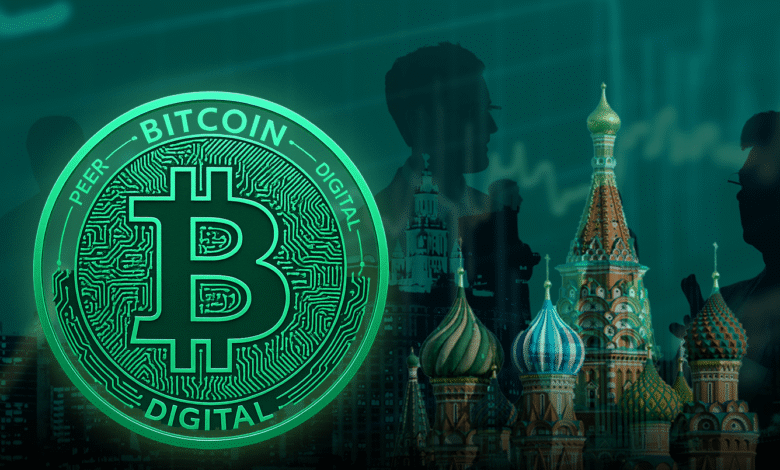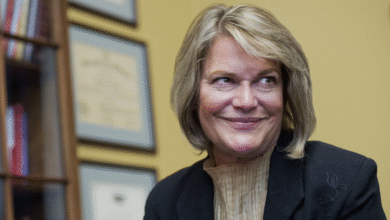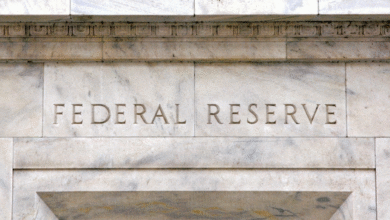Moscow Exchange Bitcoin Futures Launch for Selected Investors

Moscow Exchange Bitcoin Futures have recently made their debut, marking a significant step for cryptocurrency derivatives in Russia. Launched on June 4, this new offering is exclusively available to a select group of highly qualified investors, amidst a broader exploration of cryptocurrency trading in the region. These innovative futures contracts are tethered to Blackrock’s Ishares Bitcoin Trust (IBIT) and settle in rubles, while their values pivot on the ever-fluctuating U.S. dollar, reflecting a cautious yet strategic entry into the crypto futures trading landscape. Despite the legal status of bitcoin in Russia remaining ambiguous—where it can be owned but not used as a currency—the allure of digital assets continues to grow, with individual investments soaring to around 2 trillion rubles by late 2024. As bitcoin trading in Moscow gains traction, the potential for a robust market in cryptocurrency derivatives is starting to take shape against a backdrop of regulatory uncertainties.
The recent introduction of bitcoin futures at the Moscow Exchange represents a remarkable evolution in Russia’s engagement with cryptocurrency markets. This development allows a carefully chosen cadre of investors to speculate on the price movements of bitcoin without directly purchasing the digital currency. Tying these futures to the Ishares Bitcoin Trust enables participants to navigate the complexities of legal and financial regulations while capitalizing on the burgeoning interest in digital assets. As the infrastructure for crypto futures trading expands, it becomes increasingly evident that the Russian market is poised for significant growth in the realm of cryptocurrency derivatives. With ongoing discussions regarding the legal framework surrounding digital currencies, the landscape for bitcoin trading in Moscow is ripe for exploration.
Introduction to Bitcoin Futures Trading in Russia
The Moscow Exchange has taken a significant step towards integrating cryptocurrency into its financial infrastructure by launching bitcoin futures. Starting from June 4, this highly anticipated trading option is currently limited to ‘highly qualified’ investors, aligning with Russia’s cautious approach to the evolving landscape of cryptocurrency derivatives. This move indicates a potential shift in the market dynamics, paving the way for broader acceptance and innovative financial instruments related to bitcoin trading in Moscow.
By introducing bitcoin futures, the Moscow Exchange is not only catering to the growing demand for cryptocurrency derivatives in Russia but also providing investors with an opportunity to hedge against market volatility. Bitcoin futures allow investors to speculate on the future price of bitcoin without the need to physically own the cryptocurrency, thus simplifying the trading process and aligning with global practices in crypto futures trading.
The Role of Moscow Exchange Bitcoin Futures
Moscow Exchange bitcoin futures play a pivotal role in enhancing the overall credibility and legitimacy of cryptocurrency trading in Russia. By linking these contracts to established financial products like Blackrock’s Ishares Bitcoin Trust, the Exchange mitigates some risks associated with direct cryptocurrency trading. This strategic choice enables investors to trade futures that are settled in rubles while being valued in U.S. dollars, thus providing a layer of stability amid the unpredictable nature of crypto prices.
Moreover, the introduction of such financial instruments on a regulated platform like the Moscow Exchange marks a significant transition for cryptocurrency in Russia. It reflects the government’s intent to embrace new technologies while maintaining regulatory oversight. As more institutions participate in bitcoin trading in Moscow, the potential for expanding access to cryptocurrency derivatives may grow, allowing for increased liquidity and investment opportunities.
Understanding the Legal Status of Bitcoin in Russia
The legal status of bitcoin in Russia has been a topic of much debate and regulatory scrutiny over the years. Although individuals in Russia can legally own bitcoin, the lack of authorized platforms for its circulation raises concerns. Bitcoin does not fall under the definition of legal tender by the Central Bank of Russia, which complicates its use in everyday transactions. This ambiguity has led to a cautious approach to cryptocurrency derivatives, with recent developments suggesting that the government is moving towards a more structured regulatory framework.
The existence of bitcoin futures on the Moscow Exchange exemplifies a potential pathway towards a more comprehensive legal structure for cryptocurrencies. As the market for cryptocurrency derivatives grows, regulatory clarity may become increasingly important to attract both local and international investors. With an estimated 2 trillion rubles held in digital assets by Russian individuals, understanding the nuances of legal compliance concerning trading and investment in crypto is critical for long-term growth.
The Future of Cryptocurrency Derivatives in Russia
As the cryptocurrency market continues to mature, the future of cryptocurrency derivatives in Russia looks promising, particularly with the Moscow Exchange’s recent initiatives. Investors are becoming more interested in products that can help manage risks in a volatile market, and options like bitcoin futures are increasingly relevant. The continuous evolution of this market could suggest a new era of financial products emerging that appeal not just to high-net-worth individuals but potentially to a wider audience in the coming years.
In addition to bitcoin futures, initiatives like testing futures linked to various digital assets on platforms such as the St. Petersburg Stock Exchange illustrate a multifaceted approach to the crypto market. As regulatory frameworks develop, it is likely that more derivative products will become available, fostering a supportive environment for crypto investing and trading. The growth of such financial instruments will align Russia more closely with global trends while providing solid backing in virtual asset management.
Implications of Bitcoin Futures on Investor Behavior
The introduction of bitcoin futures on the Moscow Exchange is poised to significantly impact investor behavior in the Russian market. Investors now have the opportunity to engage in bitcoin trading without the complexities of managing actual cryptocurrency assets. Instead, they can focus on strategic investments and speculation, which can lead to increased market activity and engagement with digital currencies. This evolution might also encourage traditional investors to become more familiar with cryptocurrency derivatives.
Additionally, the ability to hedge against market volatility through futures contracts may entice institutional investors to enter the cryptocurrency space. As more investment firms and individual traders begin to participate in crypto futures trading, this could stabilize the market and promote a healthier trading environment overall. The resulting increase in adoption and understanding may potentially play a significant role in shaping the future landscape of financial markets in Russia.
Navigating Regulatory Challenges for Cryptocurrency Derivatives
Navigating the regulatory landscape for cryptocurrency derivatives is crucial for the successful implementation and acceptance of products like bitcoin futures in Russia. As governments worldwide develop specific guidelines to govern the trading and ownership of cryptocurrencies, Russia’s approach remains relatively tentative. This hesitance is influenced by the complexities surrounding the legal status of cryptocurrencies, including concerns about fraud, illicit activities, and investor protection.
For the Moscow Exchange to thrive in the cryptocurrency derivatives market, it must partner with regulators to create a transparent and secure framework. Establishing clear regulations can not only foster trust among investors but also elevate Russia’s standing in the global crypto market. As a result, ensuring that derivatives trading remains compliant with broader financial laws while adapting to the unique characteristics of cryptocurrency will be essential for long-term viability.
Harnessing Technological Advances in Cryptocurrency Trading
Technological advancements play a pivotal role in enhancing the infrastructure for cryptocurrency trading, particularly for new products like bitcoin futures. The rise of blockchain technology, for instance, allows for enhanced transparency, security, and efficiency in transactions. Utilizing such innovations can not only streamline operations on the Moscow Exchange but also address challenges associated with traditional financial markets, making it easier for investors to engage with cryptocurrency derivatives.
Moreover, the integration of cutting-edge trading platforms can facilitate a more robust trading environment, accommodating the specific demands of cryptocurrency derivatives. Technologies such as artificial intelligence and machine learning can improve risk assessment, market analysis, and trading strategies, enabling investors to make more informed decisions. As these technologies evolve, they may significantly influence investor sentiment and participation in the cryptocurrency market in Russia.
Impact of Global Cryptocurrency Trends on Russian Markets
The development of bitcoin futures on the Moscow Exchange reflects a growing alignment with global cryptocurrency trends. As countries like the United States and Canada have successfully introduced various cryptocurrency derivatives, Russia is positioning itself to harness similar opportunities. Observing global advances in cryptocurrency trading and regulations can provide valuable insights for Russia’s market strategies, potentially fostering innovation and attracting foreign investment.
Understanding these global trends not only benefits Russian investors but also helps local regulatory bodies recognize the potential financial implications of cryptocurrency derivatives. As best practices emerge internationally, adapting them to the unique nuances of Russia’s economic landscape will be essential for managing risks and maximizing opportunities in the evolving cryptocurrency market.
Emerging Opportunities with Crypto Futures Trading
The emergence of crypto futures trading presents myriad opportunities for investors and financial institutions in Russia. By engaging in bitcoin futures, participants can take advantage of price fluctuations and hedge their portfolios against potential downturns in the market. This strategic tool allows conservative and aggressive investors alike to tailor their risk exposure based on market forecasts and personal investment objectives.
The increasing accessibility of cryptocurrency derivatives could lead to a broader acceptance of digital assets among traditional investors. As futures trading becomes more established on regulated exchanges like the Moscow Exchange, it opens avenues for new investment strategies and products. This evolution could fundamentally alter the way individuals and institutions perceive and interact with cryptocurrencies, leading to a more integrated financial ecosystem.
Frequently Asked Questions
What are the newly introduced Moscow Exchange Bitcoin Futures?
The Moscow Exchange Bitcoin Futures are cryptocurrency derivatives that started trading on June 4, exclusively for highly qualified investors. These contracts allow investors to trade futures linked to Bitcoin, specifically connected to the Ishares Bitcoin Trust, making it a unique opportunity in the Russian financial market.
Who can trade Bitcoin futures on the Moscow Exchange?
Only ‘highly qualified’ investors are permitted to trade Bitcoin futures on the Moscow Exchange. This restriction is part of Russia’s cautious approach towards integrating cryptocurrency derivatives into the broader financial market.
How are Bitcoin futures settled on the Moscow Exchange?
The Bitcoin futures contracts on the Moscow Exchange are settled in rubles but are valued based on U.S. dollar market prices. This structure avoids direct cryptocurrency handling, ensuring compliance with current regulations.
What is the legal status of Bitcoin in Russia?
In Russia, Bitcoin is legally owned but is not classified as legal tender by the central bank. There’s no authorized platform for its circulation, yet it remains popular among individuals, with significant holdings in digital assets.
How does the Moscow Exchange’s Bitcoin futures trading relate to cryptocurrency derivatives in Russia?
The introduction of Bitcoin futures on the Moscow Exchange marks a significant step for cryptocurrency derivatives in Russia, as the market has been largely unregulated. This move indicates a potential shift towards more formalized trading avenues for digital assets within the country.
Are there any risks involved with trading Bitcoin futures on the Moscow Exchange?
Yes, there are risks associated with trading Bitcoin futures, including market volatility and regulatory uncertainty. Investors should be aware of these risks and conduct thorough research before trading, particularly given the developing nature of cryptocurrency regulations in Russia.
What are the implications of the Moscow Exchange’s Bitcoin futures on crypto trading in Moscow?
The launch of Bitcoin futures on the Moscow Exchange may enhance the landscape of bitcoin trading in Moscow, potentially attracting more institutional interest while providing a regulated environment for such transactions, albeit limited to qualified investors.
What other exchanges are exploring cryptocurrency futures in Russia?
The St. Petersburg Stock Exchange is also investigating futures linked to digital assets. This indicates a growing interest in cryptocurrency futures trading within the Russian financial ecosystem.
How does the Ishares Bitcoin Trust relate to Bitcoin futures traded in Russia?
The Ishares Bitcoin Trust (IBIT) is crucial as the Moscow Exchange’s Bitcoin futures are tied to this ETF, providing a structured and legally compliant method for investors to engage in Bitcoin trading without direct exposure to cryptocurrencies.
What might the future hold for cryptocurrency derivatives in Russia?
The growing interest in instruments like the Moscow Exchange Bitcoin Futures indicates a potential expansion of the cryptocurrency derivatives market in Russia, particularly as regulations evolve and more investors participate.
| Aspect | Details |
|---|---|
| Launch Date | June 4, 2023 |
| Target Investors | Highly qualified investors only |
| Type of Instruments | Bitcoin futures linked to ETFs |
| Settlement Currency | Settled in rubles, valued in U.S. dollars |
| Regulatory Status | Ongoing regulatory uncertainty in Russia |
| Popularity of Cryptocurrency | Approx. 2 trillion rubles held by individual Russians by late 2024 |
Summary
Moscow Exchange Bitcoin Futures have marked Russia’s entry into the cryptocurrency derivatives market, capturing the interest of highly qualified investors amid a cautious regulatory landscape. As Russia continues to explore the potential of digital assets, the introduction of these futures, linked to established ETFs, signals a significant step towards integrating cryptocurrency into mainstream financial practices. Despite the challenges in regulation and the lack of legal circulation platforms, cryptocurrency remains highly favored among Russians, illustrating a robust interest in this evolving market.




